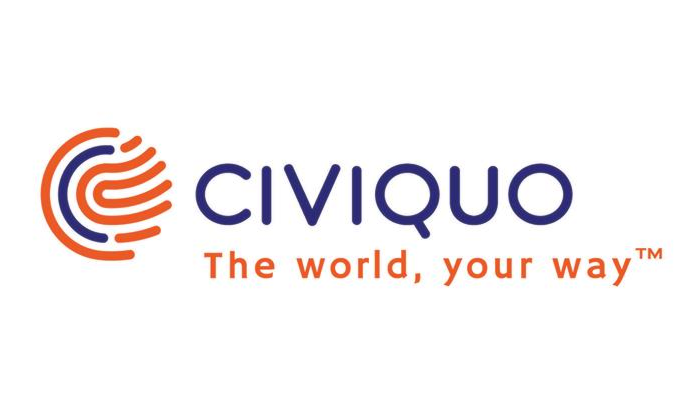Over the past few months, the RCBI industry has once again received undue negative attention, especially after the release of the EU commission’s report on investor citizenship and residence. The report points towards risks such as security, money laundering and corruption, and tax evasion. Of course, such risks can be mitigated by adopting strict due diligence practices whilst making them more accessible and more cost-effective, however no due diligence process can help mitigate the reputational risk on the entire industry, of the government advisory practice unless we find ways of establishing guidelines and rules of engagement on this aspect of the industry.
Taking the lead to create a sustainable RCBI practice
Many industry stakeholders have criticised the Commission’s report however, there seems to be consensus that standardisation and self-regulation are indeed welcome. CiviQuo is leading the way on this aspect by transforming the practice, through its online RCBI marketplace by providing easier access to the best tools in the industry.
“We already have a number of solutions for ensuring a standard approach towards on-boarding prospective applicants and how due diligence practices should be undertaken. At CiviQuo, we are helping to standardise the due diligence conducted at onboarding stage, which if done properly reduces risks considerably, from the onset,” said CiviQuo’s founder and CEO Yakof Agius.
“To achieve this, we have partnered with due diligence service providers such as Exiger and Intelect Solutions, who can provide affordable risk and compliance solutions. Furthermore, through the integration of DDIQ into CiviQuo’s onboarding mechanism, we are effectively making high-quality due diligence at on-boarding stage, more accessible and cost-effective. This also helps in minimising the impact future regulation may have. We are the first service provider delivering a pay-per-use approach to this service, within the industry.”
Mr Yakof also explained how CiviQuo will soon be releasing the first commercially available RCBI Universal Risk Matrix, which may be used to assess risks related to applications, and which tool may be used by Governments and practitioners alike.
Building a sustainable RCBI community
Another challenge within the industry is that it is currently made up of ‘generalists’, were one agency is doing everything from compiling and submitting applications, to brokerage of supporting services such as real estate and bond investments; from property management to government advisory.
As the industry matures and grows, what we may see is that more service providers move away from this generalist approach, and slowly move into specialist niches. We are already seeing firms specialising in the compiling and/or submission of applications, specialising in real estate, specialists in due diligence, specialists in the financing of investments, etc.
Such specialisations will allow smaller firms to thrive and grow through collaboration, and by being able to offer competitive pricing and a more tailor-made service, when compared to larger firms who may struggle to do so due to larger overhead costs. Some larger firms may still adopt the ‘generalist’ approach, same as large multinational financial institutions are able to offer a portfolio of services, however, this is where the real cost of increased regulation will be felt, since the larger the portfolio of services, the more complex the internal infrastructures need to be to undertake proper risk assessments and to meet the demand of regulators. One only needs to look at the financial industry to understand this better.
Financial services, such as retail banking, payment gateways, lending, commercial banking, private banking, forex, etc. were services traditionally provided by the same financial institution. However nowadays, we can see an incredible financial eco-system of specialist financial services, who are coming up with revolutionary solutions, thanks to their focus on specific areas of the industry and this is challenging the status quo of the more ‘generalist’ financial institutions. The same may be observed within the RCBI industry in a few years’ time, especially when one considers the role of technology.
Conducting adequate due diligence at any stage of an RCBI application is critical as it is really the core process on which the industry revolves and getting this wrong poses serious reputational and regulatory risks. However, when it comes to the real challenges of this industry, none pose a reputational risk greater than the government advisory practice.
Government Advisory and the need for self-regulation
For some reason the government advisory practice seems to have gone under the radar, when it comes to managing the reputational risks of the industry, even though a substantial amount of reputational damage to the industry seems to come precisely from this practice.
The media is full of allegations of bribery, corruption and other unsavoury interventions when it comes to the RCBI industry and its interaction with governments. Unfortunately, this casts a shadow over the entire industry, including on those who are doing exceptional work. Therefore, it would be reasonable to suggest that the industry needs to agree on a set of rules of engagement and guidelines, through bodies such as the IMC, to ensure that in the same manner that a code of ethics helps to set standards and self-regulate on the client-facing aspects of the industry, we do not forget that the government advisory practice carries just as much, if not more, reputational risk which if left unaddressed may have a much more catastrophic impact on the industry than a mere review of compliance requirements by regulators.
Interested in increasing your presence through CiviQuo? Visit CiviQuo.com and register now. If you believe that you can be a strategic partner to the CiviQuo community, contact us at [email protected].





